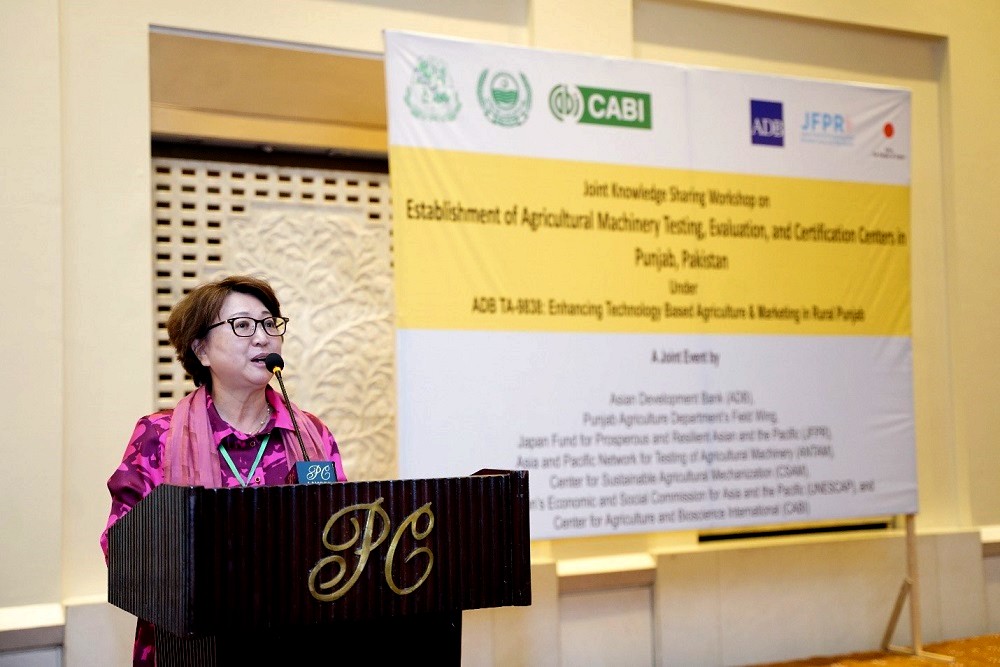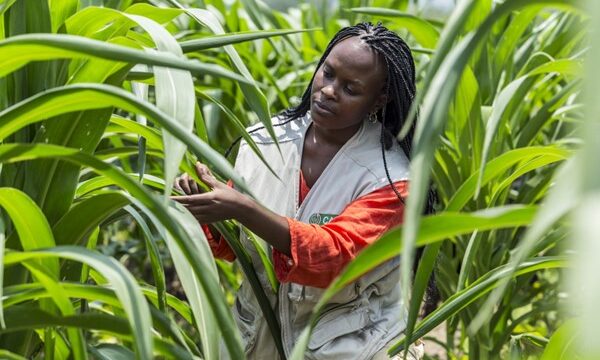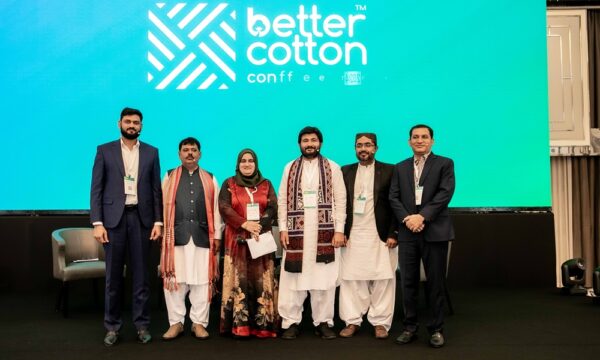
Agriculture is the backbone of the economy of many countries around the world. This includes Pakistan were the agriculture sector employs almost 50% of the nation’s work force and accounts for nearly 20% of its Gross Domestic Product (GDP).
Specifically, Punjab is one of the most fertile provinces of Pakistan and has been playing a crucial role in feeding the nation with key crops including rice, wheat, maize, bajra, sugarcane, oilseeds and cotton.
However, the agriculture sector in Pakistan has been facing several challenges, including outdated agricultural practices, lack of modern equipment, and insufficient technical know-how.
Experts shared knowledge
To overcome these challenges, and improve the overall agricultural practices in rural Punjab, a joint knowledge workshop was held recently organized under the Asian Development Bank’s Technical Assistance programme ‘Enhancing Technology-Based Agriculture & Marketing in Rural Punjab (TA 9838).’
The workshop, titled ‘Establishment of Agricultural Machinery Testing, Evaluation, and Certification Centers in Punjab, Pakistan,’ held in Lahore, was attended by more than 65 participants.
These included a range of stakeholders including international mechanization experts, machinery service providers/importers, farmers, and academics.
It was a collaborative effort of several esteemed institutions including the Asian Development Bank, Field Wing, Punjab Agriculture Department, Japan Fund for Prosperous and Resilient Asian and the Pacific (JFPR), Asia and Pacific Network for Testing of Agricultural Machinery (ANTAM), Center for Sustainable Agricultural Mechanization (CSAM), United Nation’s Economic and Social Commission for Asia and the Pacific (UNESCAP), and CABI.
The workshop began with the welcoming remarks by Engr. Muhammad Akram Kasuri, Director General Agriculture (Field), Punjab, who acknowledged the efforts of CABI and other partner organizations in conducting the successful workshop.
Importantly, he put emphasis on the dire need of establishing an Agricultural Machinery Testing, Evaluation and Certification (AMTEC) center in Pakistan.
Speaking on the occasion Dr Shakeel Ahmad, Project Manager at CABI, highlighted the salient features of the project which includes testing and demonstration of improved grain harvesting technologies for wheat, rice and maize.

During the interactive sessions, the five invited international experts shared their valuable insights and expertise – providing attendees with the latest developments in agricultural mechanization and an opportunity to share their perspectives.
The experts included Dr Sandro Liberatori from ANTAM, Dr Jean-Paul Douzals from the French National Institute for Agriculture, Food and Environment, Research (INRAE), Dr Luigi Pari from ADB, Dr Arthur L. Fajardo from University of the Philippines Los Baños, and Dr Marco Silvestri, Program Management Officer, ESCAP-CSAM.
Benefits highlighted
Dr Sandro spoke about the importance and benefits of standards, testing and certification in agricultural mechanization and Dr Douzals discussed the guidelines to mitigate the environmental impacts of pesticide spraying.
Meanwhile, Dr Luigi discussed the guidelines for the selection of combine harvesters and techniques to reduce harvest losses.
Dr Fajardo shared his experience of setting up a testing facility and managing national accreditation in respect of an Agricultural Machinery Testing and Evaluation Center (AMTEC) in College of Engineering and Agro-Industrial Technology (CEAT), University of the Philippines Los Baños (UPLB).
Dr Marco also shared his perspectives on the proposed certification system and the roles and responsibilities of the stakeholders as well as the challenges and issues involved in certification process.
The workshop also provided a platform for participants to discuss the challenges and opportunities in the agriculture sector, particularly in the area of mechanization.
It was acknowledged that the adoption of modern machinery and equipment is critical for enhancing agricultural productivity and improving the livelihoods of farmers.
The establishment of testing, evaluation, and certification centers for agricultural machinery will not only ensure the quality of machinery but will also help create awareness among farmers about the importance of modernization.
Commitment to collaborate
The event concluded with a commitment from all stakeholders to work together to establish testing, evaluation, and certification centers for agricultural machinery in Punjab.
The success of this workshop underscores the importance of collaborative efforts in improving agricultural practices, particularly in the establishment of testing, evaluation, and certification centers for agricultural machinery.
By providing farmers with access to modern and efficient machinery, the yields and profits for farmers can be increased.
Engr. Dr Rafiq-ur-Rehman, ex-DGA Field, while closing the event, summarized the proceedings of the knowledge sharing workshop.
He thanked the members of the delegation for sharing their valuable knowledge in the areas of testing, evaluation and certification.
The workshop will be a significant step towards enhancing agricultural practices in rural Punjab. It highlighted the importance of collaborative efforts and provided a platform for stakeholders to share their expertise and insights.
It is hoped that this workshop will pave a way for a more modernized and efficient agricultural sector in Punjab and Pakistan as a whole.
Moreover, it will serve as a catalyst for further collaboration and progress in the field of agricultural mechanization in Punjab and beyond.
Additional information
Main image: Participants of the Knowledge Sharing Workshop (Credit: CABI).
Authors:
Gohar Gulshan Mahmood – Agricultural Engineer
Shakeel Ahmed – Coordinator, Development Communications and Extension
Contributor:
Mahwish Sarwar
Relevant story
‘Pakistan’s maize farmers get to grips with mechanized technology aimed at improving productivity.’
Related News & Blogs
Strengthening the potato value chain in the Kurdistan Region of Iraq
On 30th May, we marked the International Day of Potato. In this blog, CABI’s Crop Health Advisor Anna Wood provides an update on a five-year project led by CABI to strengthen the potato value chain in the Kurdistan Region of Iraq. An ambitious five-yea…
3 June 2025




